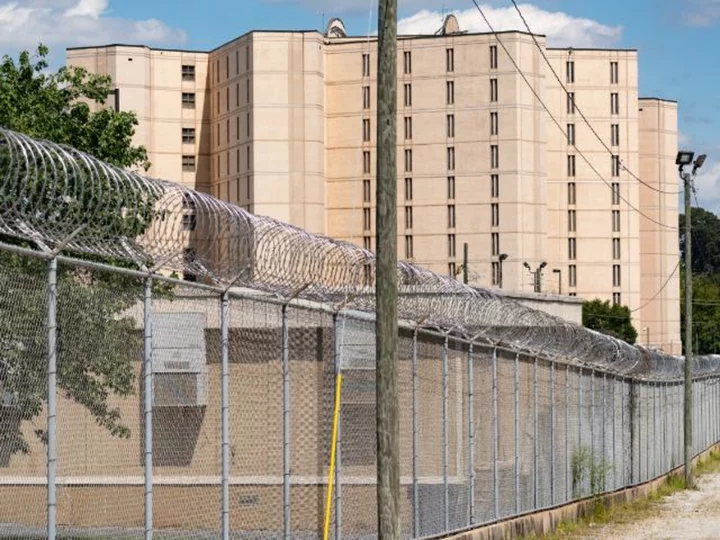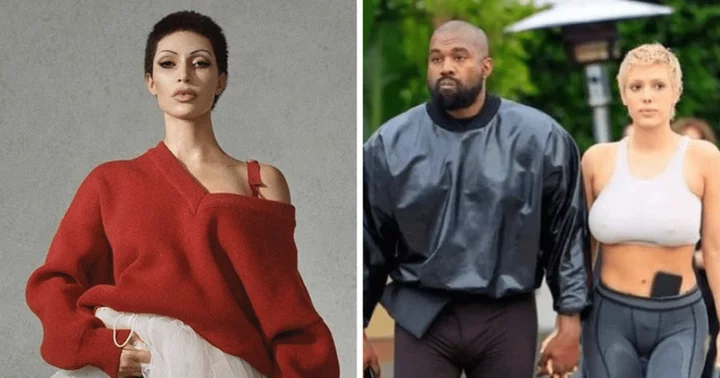If former President Donald Trump were facing the booking process that newly charged criminal defendants in Fulton County typically experience, he might find himself lingering for hours at the Rice Street jail waiting for his fingerprints and mug shot to be taken.
Even by the standards of local jails, the Fulton County jail on Rice Street has a reputation for especially deplorable conditions for inmates. Last month, the US Justice Department launched a civil rights investigation into living conditions, access to health care, violence against detainees and possible discrimination against those with psychiatric disabilities.
But the treatment that defendants receive when being booked and processed on criminal charges in Fulton County varies drastically, case by case. The system gives discretion to prosecutors, the magistrate judges who often preside over the first court appearances and the superior court judges who have been assigned the underlying case.
While officials have vowed to treat Trump and his associates as they would any defendant, that is likely impossible due the security precautions required for a former president and the high-profile nature of some of his co-defendants.
"We're in uncharted waters at this point," Chris Timmons, a former prosecutor and now a law partner at Knowles Gallant Timmons in Atlanta, told CNN. "We haven't had a former United States president or anyone with Secret Service protection booked into the Fulton County jail."
Trump's team has already been in contact with Fulton County District Attorney Fani Willis' office and conversations are expected to continue early next week about the conditions of his appearance and the logistics of his surrender. Other defendants have also engaged with the district attorney, sources told CNN.
Willis gave Trump and his co-defendants in the case, which alleges they engaged in racketeering scheme and other crimes in their efforts to overturn Georgia's 2020 election results, until August 25 to turn themselves in voluntarily. That nearly two-week window for self-surrender has given the defendants time for planning and for potential outreach to prosecutors to discuss how the process will work.
'We've got mugshots ready for you'
Attorneys for defendants in the Trump case are expected to negotiate with the district attorney's office to agree to terms of release and bond for their clients -- known as a consent bond -- before they turn themselves in at the jail in Fulton County. Many of those discussions are expected to take place in person next week, according to people familiar with the matter.
Defendants have an incentive to settle the bond question before they turn themselves in. If they surrender at the jail without a bond agreement in place -- which has to be approved by a Fulton County Superior Court judge -- they will be held in custody, attorneys familiar with the process said.
The jail is open 24/7 for Trump and his allies to turn themselves in and Fulton County Sheriff Patrick Labat is among the officials publicly insisting Trump and his associates will face the same processing steps as any other defendant.
"Unless someone tells me differently, we are following our normal practices," Labat told reporters earlier this month. "It doesn't matter your status. We've got mug shots ready for you."
Normally, those taken into custody are thoroughly searched by a jail deputy. In the past, though, some high-profiled defendants who have voluntarily surrendered were not subjected to that thorough body search, a person familiar with the process told CNN.
Defendants also typically undergo a medical screening and receive a pre-trial consultation to determine whether they can sign out on their own recognizance, although it's not clear whether those same steps would be taken with Trump and other high-profile defendants.
For an average defendant, the booking process can take hours, much of which can be spent waiting around for their turn to be booked.
"In this particular case, you're dealing with VIPs," Timmons said. "Having them there is kind of a pain."
For Trump and other prominent defendants, the process will likely move much more swiftly. Some may coordinate with the sheriff's office before they arrive to try to expedite the process. And in Trump's case, the Secret Service would likely coordinate with the sheriff's office ahead of Trump's arrival.
"If everybody's there and ready to do their job, it probably takes three minutes to get a set of fingerprints," Timmons said. "It could be 15 minutes total to get them in and out."
In a typical case in Fulton County where police make an arrest, the person arrested is booked into jail and must appear before a magistrate judge within 72 hours. That won't be the case for the defendants in this racketeering case. Since they have already been indicted and will likely have negotiated bond, they most likely won't have an initial court appearance, attorneys told CNN.
The judge that considers the bond agreement, likely Fulton County Superior Court Judge Scott McAfee who was assigned to the case, has to consider four factors when deciding whether to approve the bond agreements, attorneys told CNN. The judge has to determine the defendant is not a flight risk, is not likely to commit other felonies pending trial, does not present a danger to the community and is not likely to intimidate witnesses or take other steps to interfere with the case.
It's possible Trump and his alleged co-conspirators won't even have to show up at court for an arraignment. McAfee could choose to arraign the defendants virtually or he could allow them to waive their arraignments altogether. If he does the latter, it's unclear when the public might see Trump his co-defendants in a Georgia courtroom for the first time.
Gerald Griggs, the head of the Georgia NAACP, which has been scrutinizing the poor conditions of the Fulton County jail, said he understood, given the security concerns, why the former president would get treatment that would spare him from spending time in custody with the general population of the jail.
For Trump's co-defendants, Griggs said, "everybody else should be treated exactly the same."
"It just underscores the injustice that could possibly happen to everyone else, if there is any favoritism or preferential treatment that is given to these individuals for how they turn themselves and are expedited out," Griggs said.
Custody at Fulton County Jail
The Justice Department last month launched a civil rights investigation into the jail which has been the site of multiple deaths on the premises.
US Assistant Attorney General Kristen Clarke pointed to the death last year of LaShawn Thompson, whose family has blamed unsanitary conditions, including a bed bug and lice infestation, as contributing to his death.
"Those circumstances were far from isolated," Clarke said in announcing the investigation last month. "Following Mr. Thompson's death, evidence emerged that the mental health unit where he died was infested with insects and that the majority of people living in that unit were malnourished and not receiving basic care."
Three jail officials stepped down earlier this year, after a preliminary investigation into Thompson's death.
Labat has sought more than in $2 billion in county funding to build a new jail and has acknowledged the difficulties in meeting safety and health standards in the current facility, which, from the day that it opened, was not large enough to accommodate the population that comes through it.
The sheriff said he was not surprised by the announcement. In fact, he says he welcomes it.
"We welcome another audit, another opportunity for people to come by and help us get it right," Labat told CNN. "We don't discriminate. Our goal is to maintain our focus on care and custody, maintain our focus on that."









